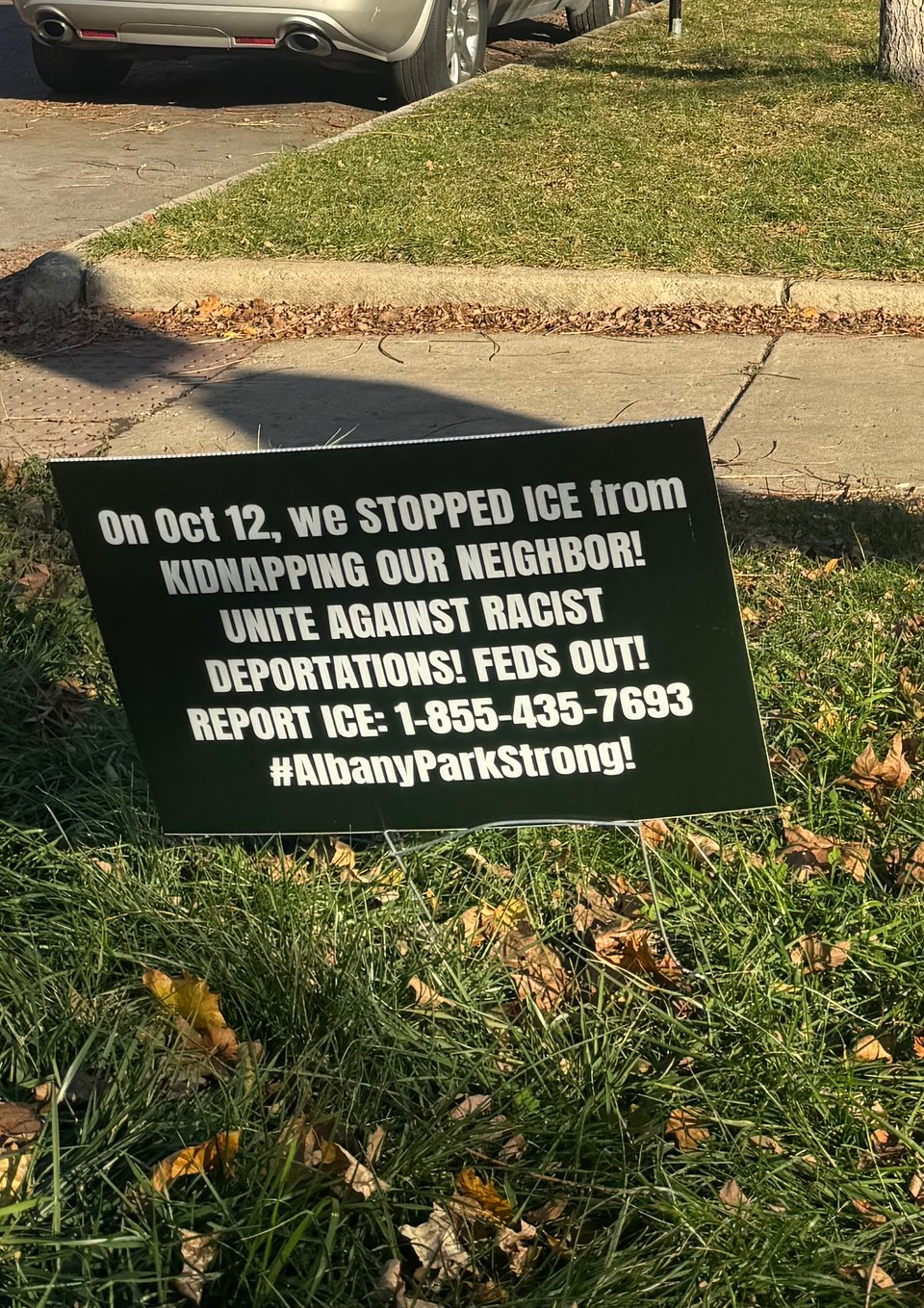A shrine against disappearances
I'm not sure if roadside memorials are a uniquely American thing or if it's just that we do a lot of traffic fatalities in this country but for many years I've had this image in mind for a poem: a street becoming absolutely overwhelmed and choked with colorful shrines for people who suffered some great harm in that vicinity. I picture a sort of reverse Felix Gonzales-Torres "Untitled (Portrait of Ross in LA)" in this poem. (I'm currently submitting the poem and the chapbook it's in for hopeful future publication, so I can't put it in this newsletter because that'd count as being "previously published," but I can send it to you directly if you'd like: just hit reply.)
Because I live in and dearly love Chicago, because this city is defiantly situated in America right now, I have been thinking about this image more urgently, and about witnessing things that shouldn't be allowed to disappear in the deluge of daily information. Yesterday I was biking around the neighborhood and passed this sign:

Which feels like a gesture towards the sort of permanent and unmissable monument that I imagined in my poem.
I thought also of the Stolpersteine memorials that are present all over Berlin, and that I also stumbled on unexpectedly in Bergen and Oslo this summer. If I were a metalsmith or a mosaic-maker I'd start to put them in the sidewalks here now: here is the corner where a friend of a friend was violently arrested on her walk to one of my own regular bus stops to go to work, here the block where they snatched a preschool teacher with a work visa from the daycare where she taught small children in front of her class. But I am not a metalsmith or a mosaic-maker or even a reporter. Other folks including Dan Sinker, Kelly M. Hayes, and Kyle Kingsbury have already written beautifully about bearing witness to this moment and the way Chicagoans are meeting it.
I've been wondering about what will last in literature from right now: what will be "The Colonel" of Chicago during Operation Midway Blitz? (Content warning for descriptions of violence in that linked poem if you haven't read it; it's unforgettable and well worth reading if you're in a spot to do so.)
What does bearing witness look like? Essays with dates and times and photos, sure. Stolpersteine with names outside of the homes of the departed, strikingly. Carolyn Forché, who wrote the aforelinked and widely-anthologized "Colonel" poem, popularized a poetics of witness. But also, sometimes, others' words reassembled into poems bear witness too. I recently read Arguing with Something Plato Said by Jack Collom and got very emotional at "Passages," a long poem about the extinction of the passenger pigeon. Many voices speak here: the pigeons themselves, transcribed onomopoeiatically, colonists and indigenous people and Audubon. And near the end an arrow of text decays, counting their disappearance down the page:
It is possible to lose my coherence though I am billions of breathing comets.
It is possible to lose my coherence though I am billions of breathing.
It is possible to lose my coherence though I am billions of.
It is possible to lose my coherence though I am billions.
It is possible to lose my coherence though I am.
It is possible to lose my coherence though I.
It is possible to lose my coherence though.
It is possible to lose my coherence.
It is possible to lose my.
It is possible to lose.
It is possible to.
It is possible.
It is.
It.
Followed, again, by a line transcribing pigeon sounds. (I’m working my way through reading this very worthwhile essay on transcription by internet genius Allison Parrish, which is rattling around my mind as another way of understanding and another tool in poetics and truth-telling).
I think poetry is unique among arts in its susceptibility to being carried across time and space, on the breath or the page, and retold, over and over again. I love that Jack Collom brought the time that passenger pigeons blanketed the sky back into being, even though it ended before he was born.
I don't have a neat button to put on this essay. I don't think we should stand for a society that disappears people for the crime of being born across a border, or for no crime at all. I don't make memorials but I do take note, and I remember.
Thank you for reading, take care of yourself and your neighbors, carry a whistle (Pilsen Arts & Community House has resources on their homepage now for why this works) and learn the SALUTE method. We're all we've got and I still believe we can be enough.
Yours, Erin